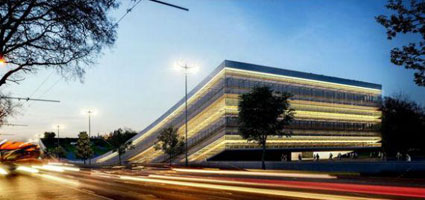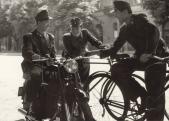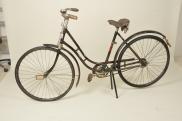 |
Address: 1146, Budapest Dózsa György út - Ötvenhatosok tere
Phone number: (1) 473-2400
E-mail: info@neprajz.hu
Opening hours: Tue-Sun 10-18
|
|
Individual ticket for adults
|
3000 HUF
|
|
|
Individual ticket for adults
(1 hour before closing)
|
1600 HUF
|
|
|
Group ticket for adults
(min. 10 people)
|
2600 HUF
|
/ capita
|
|
Individual ticket for students
|
1500 HUF
|
|
|
Individual ticket for students
(1 hour before closing)
|
800 HUF
|
|
|
Group ticket for students
(min. 10 people)
|
1300 HUF
|
/ capita
|
|
Individual ticket for pensioners
|
1500 HUF
|
|
|
Individual ticket for pensioners
(1 hour before closing)
|
800 HUF
|
|
|
Group ticket for pensioners
(min. 10 people)
|
1300 HUF
|
/ capita
|
|
Ticket for families
(2 adults + max. 3 children (up to 18 years old))
|
6300 HUF
|
/ family
|
|
Individual combined ticket for adults
(Zoom permanent exhibition + Ceramics Space + MÉTA)
|
1700 HUF
|
|
|
Individual combined ticket for adults
(We Have Arrived temporary exhibition + Ceramics Space + MÉTA)
|
2000 HUF
|
|
|
Individual combined ticket for students
(Zoom permanent exhibition + Ceramics Space + MÉTA)
|
850 HUF
|
|
|
Individual combined ticket for students
|
1000 HUF
|
|
|
Individual combined ticket for pensioners
(Zoom permanent exhibition + Ceramics Space + MÉTA)
|
850 HUF
|
|
|
Individual combined ticket for pensioners
(We Have Arrived temporary exhibition + Ceramics Space + MÉTA)
|
1000 HUF
|
|
|
Group walk ticket
(building walk, max. 15 people)
|
1500 HUF
|
/ capita
|
|
Group walk ticket for students
(Méta gallop, 10-20 people)
|
1200 HUF
|
/ capita
|
|
Group walk ticket
(building walk, in English, max. 15 people)
|
1800 HUF
|
/ capita
|
|
Group walk ticket for students
(Méta gallop, 10-20 people, in English)
|
1400 HUF
|
/ capita
|
|
Group guide
(10-20 people)
|
1000 HUF
|
/ capita
|
|
Group guide
(thematic, whit the curator of the exhibition, 5-20 people)
|
1300 HUF
|
/ capita
|
|
Group guide for students
(min. 10 people)
|
800 HUF
|
/ capita
|
|
Group guide
(10-20 people, in English)
|
1300 HUF
|
/ capita
|
|
Group guide
(thematic, whit the curator of the exhibition, in English, 5-20 people)
|
1690 HUF
|
/ capita
|
|
Group guide for students
(in English, 10-20 people)
|
1000 HUF
|
/ capita
|
|
Audio guide
|
1000 HUF
|
|
|
Photography
(for camera, camera-stand and telephoto lens)
|
700 HUF
|
Bicycles are just as diverse as people. In Budapest cycling circles it is not news that the Museum of Ethnography came up with a project bike. However, it is the first time that a comprehensive exhibition is to open about one of the most popular means of transport. The Metropolitan Museum of Subotica showed the exhibition in 2011 entitled City of Cyclists - Historical, Ethnographic and Artistic aspects Bicycles in Subotica . This exhibition is on from April at the Ethnographic Museum, with a new Budapest cycling culture related material added to it.
The resulting two distinct but inseparable exhibitions focus on urban cycling hoping t promote it. In addition to revealing historic relations, the exhibition is also interested in how an everyday object has become determining factor in various communities and sub-cultures. The exhibition Bicycle City deals with the history of cycling from the second half of the 19th century via texts and photos. In addition to dealing with clubs and sports events, we also put great emphasis on the Bike Factory Partisan, as well as the history of Weiss Manfred and the Factory Csepel not forgetting about repair shops and workshops either.
The exhibition Bicycle City reveals how bicycles became working tools in the 20th, how they were used for sport and fashion accessories. In addition, socially sensitive issues are raised, such as the history of women and cycling. In important section of the exhibition Bicycle City is a reflection on contemporary urban bike culture, to which the milestone in Budapest, is the event Critical Mass Budapest which was launched in 2004. A similar role is played by in the Subotica based bike parade called Trimbi held annually. The realization of the exhibition and related programs are assisted by urban cycling organizations, communities and individuals such as the Hungarian Cyclists' Club, Alkatréxerész, a company recycling bicyclist materials and manufacturing special bike clothing and handbags, as well as Bagaboo, Balkantango, Cangira , Felvarrom, Fux Fox, Gesu, Ferenc Gulyás „Gulyi", Levente Gyáni ( Küllőkezű Edward) , Musu , Recikli Bicycle Workshop, Serinsapi or the movement Hungarian Cycle Chic. Bikes make you motile, open and free. Distances do not only disappear between places but also between people.
Contribute partners are the Csepel Bicycle Manufacturing Co., Kossuth Museum (Cegléd), Hungary, Hungarian Technology and Transport Museum, National Museum, the Hungarian Olympic and Sports Museum, Hungarian Postal Services, the Bike Shop 'Pajtás',, the Open-Air Ethnographic Museum, Péter Tarapcsák and many other individuals.



